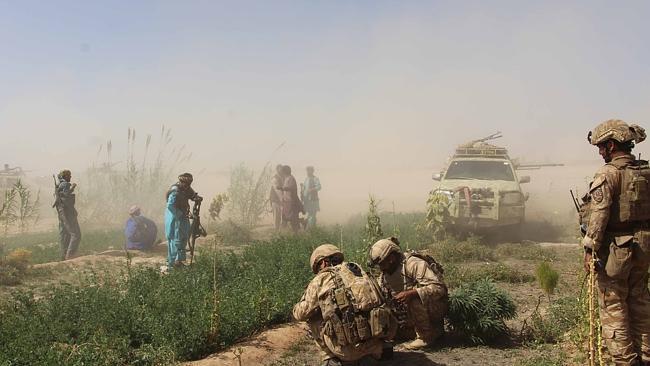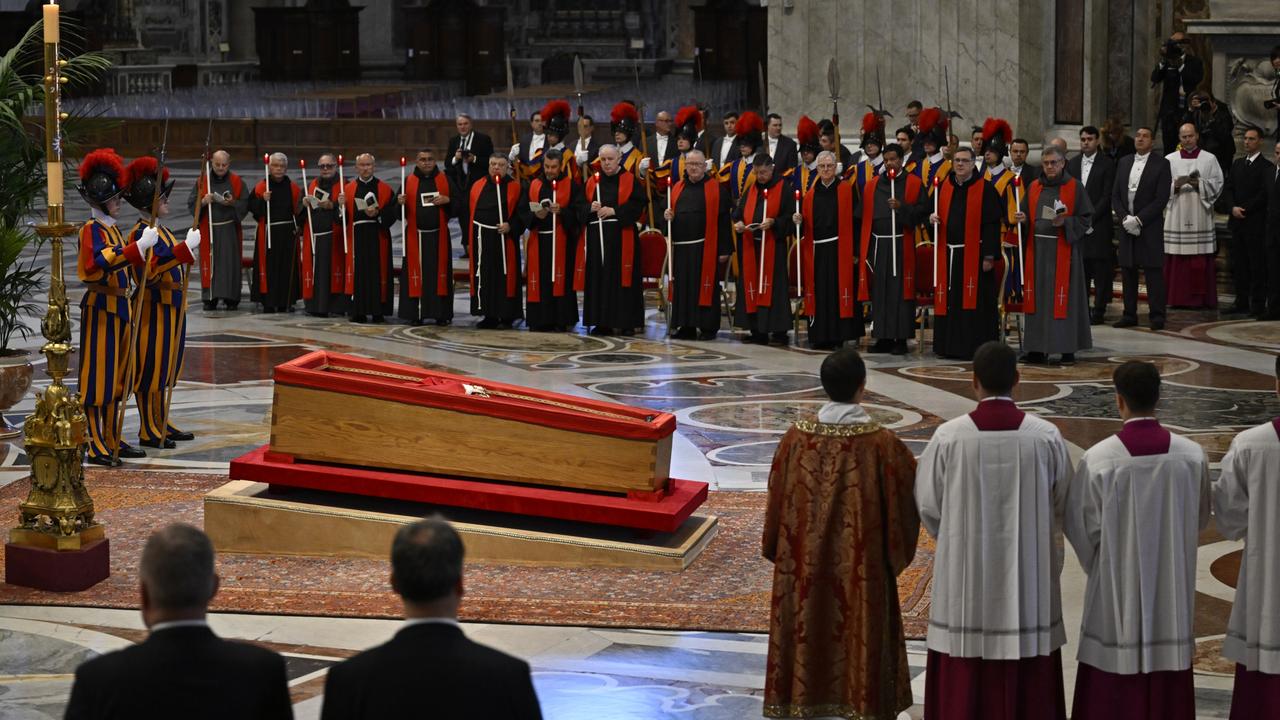Donor nations scrum down to prop up failing Afghanistan
The world’s rich nations are meeting in Brussels this week to determine how best to prop-up a blighted Afghanistan.

With the Taliban at the gates of several provincial capitals — including the former Australian base of Tarin Kowt — the world’s rich nations are meeting in Brussels this week to determine how best to prop up one of the poorest, a blighted Afghanistan.
Representatives from 70 nations and 20 international aid organisations are at the Brussels Conference on Afghanistan, 15 years after Coalition forces, including Australian troops, invaded following the September 11 attacks on the US in 2001.
“This struggle will not end in a truce or a treaty,” said president George W. Bush at the time. “It will end in victory for the United States, our friends and for the cause of freedom.”
British prime minister Tony Blair promised to minimise the suffering of the Afghan people while his Australian counterpart, John Howard, said the immediate goal was to “destroy al-Qa’ida and ensure that Afghanistan can never again serve as a base from which terrorists can operate”.
Fifteen years on, Blair, Bush and Howard have moved on and Afghanistan is very much a base from which terrorists can operate. There’s no sign of victory, or even hope of a truce or a treaty, and war-weary donors are being asked to dig deep, again.
The Brussels conference is expected to elicit pledges worth almost $4 billion a year until 2020, although the exact amount is unclear, with donor fatigue caused by the war in Syria and the migration crisis across Europe.
Afghan analyst in Kabul Haroun Mir told The Australian that while the world may be leery of giving to Afghanistan it could not afford the other option, which was to see it collapse.
However, Mr Mir said the donors would be wasting an opportunity if they didn’t insist on tying the donations to political reforms, which would make the government accountable, and to force it to attack corruption in both the private and public sectors.
Officials didn’t even bother to hide their corruption and instead wore it as “a badge of pride,” flaunting expensive cars and watches and living in huge marble houses known as “poppy palaces”, despite receiving salaries of only a few thousand dollars a month.
Afghan media mogul Saad Mohseni said that one of the most important outcomes of the Brussels conference, for Afghans, was for them to know that the world wasn’t abandoning them.
This was “psychologically” important to the stability of the country and the millions who had embraced democracy.
He said that, at a recent NATO summit, “the world reiterated its security commitment to the country and I think domestically this is very important, because it reassured the majority of Afghans that the world remains committed in terms of supporting the Afghanistan national security forces and the government.
“This (the financial support from Brussels) will obviously have a similar impact.”
However, Mr Mir and Mr Mohseni are highly critical of the national unity government, with Ashraf Ghani as President and Abdullah Abdullah as Chief Executive, and said the world must insist on reform.
“One of the things people are hoping for, especially the elite, is that they have a tough talk with the President and his CEO and say, ‘look, business as usual is not good enough’,” Mr Mohseni told The Australian.
The ineptitude was not just in the security response to the Taliban and Islamic State, but across a whole range of government departments.
“The economy is continuing to weaken,” Mr Mohseni said.
“They’ve been unable to implement major reforms. The electoral reform process has stalled. They haven’t dealt with corruption.
“The President is continuing to try and micromanage the government and some of the most inept individuals are in charge of key positions.”
Mr Mohensi said the security forces needed major reform and the government also had to invest in infrastructure.
“Infrastructure is going to create jobs and it is going to provide people with a sense of hope,” he said.
“They need to deliver on people’s needs for electricity and proper roads … those are the things people care about.” It all seemed so simple, 15 years ago.



To join the conversation, please log in. Don't have an account? Register
Join the conversation, you are commenting as Logout